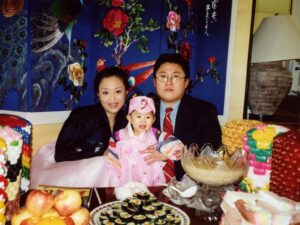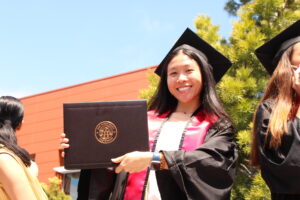Deciding when to retire involves reflecting on personal aspirations, financial readiness, and lifestyle preferences. It prompts thoughts about shifting from a career-focused life to one centered around personal fulfillment and leisure. This exploration delves into my perspective on retirement timing, balancing cultural expectations with personal goals in this significant phase of life.
Traditional Ways to Retire

Traditionally, retirement has been viewed as a phase of life. Individuals withdraw from the workforce after reaching a certain age, typically around 65 or upon becoming eligible for pension benefits. This concept stems from historical practices and societal norms that have evolved over time.
In many cultures, retirement has been structured around financial milestones. These include qualifying for a pension or social security benefits, which provide a steady income after leaving employment. This financial aspect has historically defined the timing of retirement for many people. It allows individuals to transition from earning a salary to relying on savings, investments, and government support.
Lifestyle in Traditional Retirement

Moreover, traditional retirement often represents a shift in lifestyle characterized by leisure and relaxation. It’s seen as a period to enjoy the fruits of one’s labor and pursue personal interests. Many retirees use this time to travel, pursue hobbies, volunteer, or engage in community activities they couldn’t prioritize during their working years.
However, the concept of traditional retirement is evolving. Factors such as increased life expectancy, changes in healthcare, and shifting attitudes toward work and leisure are reshaping retirement. Some retirees opt for part-time work or start new careers that align with their passions, blending income with personal fulfillment.
Despite these shifts, traditional retirement remains valuable. It’s a time for individuals to reflect on their achievements, plan for the future, and enjoy a break from full-time career demands. Additionally, retirement symbolizes the end of one chapter and the beginning of another. It offers opportunities for personal growth, exploration, and pursuing happiness in alignment with individual aspirations and values.
Deciding When to Retire
Deciding when to retire is a highly personal decision influenced by a variety of factors. While traditional retirement age has often been around 65, several factors now contribute to a more flexible approach to retirement timing.
1. Financial Readiness

Financial preparedness is perhaps the most critical factor in determining when to retire. It involves assessing whether one has enough savings, investments, pensions, and social security benefits to sustain their desired lifestyle throughout retirement. Factors to consider include:
- Income Sources: Evaluate sources of income post-retirement, including pensions, retirement accounts (like 401(k)s or IRAs), and other investments.
- Expenses: Estimate anticipated expenses in retirement, including healthcare costs, housing, travel, and leisure activities.
- Debt: Consider paying off major debts such as mortgages or loans to minimize financial burdens during retirement.
2. Personal Goals and Lifestyle

Retirement offers an opportunity to pursue personal passions and interests that may have taken a backseat during one’s career. Some considerations include:
- Lifestyle Choices: Assess desired retirement lifestyle, such as traveling, hobbies, volunteering, or starting new ventures.
- Health and Wellness: Consider personal health and well-being. Retiring earlier may allow for more time to focus on physical fitness, mental health, and stress reduction.
3. Health Considerations

Health status plays a crucial role in retirement planning. Factors to consider include:
- Healthcare Coverage: Evaluate healthcare needs and coverage options, including Medicare eligibility and supplemental insurance.
- Longevity: Consider family history and personal health factors that may impact life expectancy and healthcare needs in retirement.
4. Social and Emotional Readiness

Retirement also involves adjusting to significant changes in daily routine, social interactions, and personal identity:
- Social Connections: Evaluate how retirement may impact social networks, including relationships with colleagues, friends, and community involvement.
- Purpose and Meaning: Consider how retirement aligns with personal values, providing opportunities for personal growth, learning, and contributing to others.
5. Flexibility and Planning
In modern times, the concept of retirement is evolving, allowing for greater flexibility in determining when and how to retire. Some individuals may choose phased retirement, reducing work hours gradually, or pursue encore careers that blend income generation with personal fulfillment. Others may prioritize financial independence and retire earlier, while some may continue working past traditional retirement age for various reasons.
Embracing Passion and Seizing the Moment
In conclusion, my perspective on when to retire underscores the importance of seizing the moment and embracing passion. The tragic loss of my ex-husband, who passed away shortly after retiring, serves as a poignant reminder. It highlights the significance of not delaying our dreams until circumstances force our hand.
To me, retirement signifies more than just leaving the workforce. It’s also about embracing life with vigor and purpose. Additionally, it’s a time to prioritize happiness, pursue interests wholeheartedly, and cherish meaningful connections. By retiring when ready and engaging in activities that bring joy, we can create a fulfilling life that leaves no room for regrets.
Ultimately, I encourage everyone to approach retirement with a mindset of readiness and enthusiasm. Embrace your passions, nurture relationships, and live each day to the fullest. Whether it’s exploring new hobbies, traveling the world, or simply enjoying quiet moments with loved ones, retirement offers the opportunity to write a new chapter filled with fulfillment and contentment.
Read about my decision to retire early in my article on early retirement.















